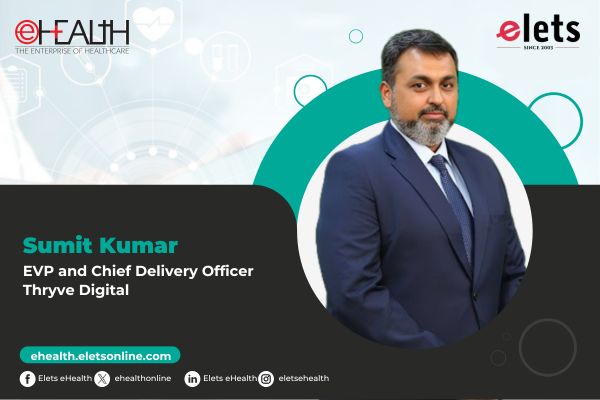
Healthcare innovation, particularly in Saudi Arabia, has been a journey of unexpected twists and turns. Initially envisioning a career in academia and clinical practice, the shift to a strategic role in the Kingdom’s health sector marked a significant deviation. The opportunity to work in the Vision Realization Office, focusing on designing strategies for the kingdom’s healthcare system, was a pivotal moment, shared Dr Mohammed Alhamali, Chairman of National Innovation & Sandbox, Chief Innovation Officer – SEHA Virtual Hospital, Ministry of Health, Saudi Arabia at 2nd Elets Global Healthcare Summit & Awards in Dubai.

He said, “One of the most notable achievements in this journey has been the establishment of the Sahab Virtual Hospital during the COVID-19 pandemic. This initiative aimed to address the difficulties people faced in accessing hospital care by creating the largest virtual hospital in the region. Initially linked to 40 hospitals, it expanded its network to 170, enabling digital transformation across these facilities. The hospital facilitates doctor-to-doctor and doctor-to-patient consultations, adopting a business model that caters to both B2B and B2C needs. Innovative technologies like live surgery streaming and augmented reality have been leveraged to enhance surgical expertise across various regions, thereby reducing patient referrals to larger hospitals.”

Healthcare innovation extends beyond technology to encompass process improvements and human resources. The focus is on aligning with the quadruple aim of healthcare: improving outcomes, reducing costs, and enhancing patient and provider experiences. The role of technology in reshaping healthcare is undeniable, but it’s crucial to ensure these innovations are safe and beneficial for patients. This involves rigorous study and impact assessment of each innovation, with a particular emphasis on not causing harm, a fundamental principle in healthcare.

Addressing the barriers to innovation is also essential. These include fear of failure, lack of funding, product-market fit issues, and regulatory challenges. Overcoming these barriers requires a multifaceted approach, including encouraging a culture of experimentation where failure is seen as part of the learning process, securing funding, and ensuring innovations are timely and market-ready.

He further added, “The regulatory sandbox concept was introduced to provide a safe testing environment for new healthcare innovations. This initiative, supported by various government and semi-government entities, aims to empower innovation while ensuring patient safety.”
The healthcare ecosystem’s innovation involves collaboration among diverse stakeholders, including innovators, entrepreneurs, regulators, and investors. Understanding each stakeholder’s role and challenges is crucial for fostering an environment conducive to innovation. This approach has led to the incubation of over 400 innovations, with 21 solutions set to graduate in the following year.
Concluding the session, he expressed, “The journey of innovation in Saudi Arabia’s healthcare sector underscores the importance of vision, adaptability, and collaboration. The establishment of a regulatory sandbox and the focus on safe, impactful innovations demonstrate a commitment to advancing healthcare while navigating the challenges inherent in introducing new technologies and processes.”
Be a part of Elets Collaborative Initiatives. Join Us for Upcoming Events and explore business opportunities. Like us on Facebook , connect with us on LinkedIn and follow us on Twitter , Instagram.
"Exciting news! Elets technomedia is now on WhatsApp Channels Subscribe today by clicking the link and stay updated with the latest insights!" Click here!
















